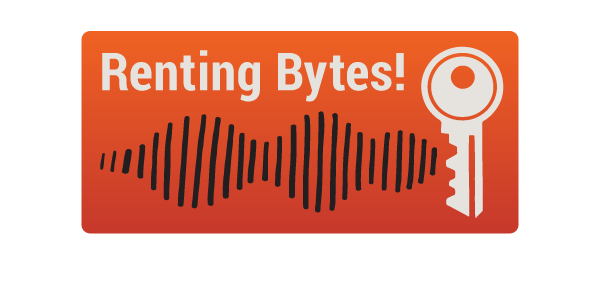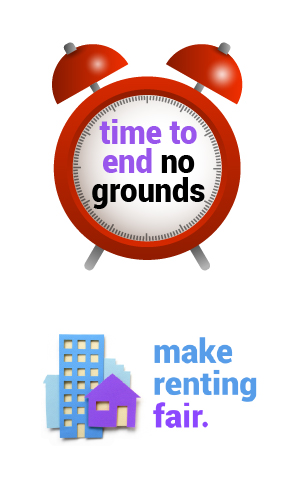NSW Civil & Administrative Tribunal
As a tenant you have rights under the Residential Tenancies Act 2010 and Residential Tenancies Regulation 2019. This factsheet summarises how the Tribunal settles disputes between tenants and landlords.
About the Tribunal
The NSW Civil and Administrative Tribunal (NCAT) is an independent body which deals with certain kinds of disputes between landlords and tenants. It is not a formal court, but its decisions are legally binding. The people who hear cases at the Tribunal are called Tribunal Members.
Most remedies from the Tribunal are for breach of contract – not obeying the terms of the residential tenancy agreement. NCAT was established in January 2014 with the integration of 20 formerly separate NSW tribunals, including the Consumer, Trader and Tenancy Tribunal (CTTT).
Applying for a hearing
Application forms are available from:
- Tribunal Registries or the Tribunal’s website (phone 1300 006 228 or see ncat.nsw.gov.au)
- Fair Trading Centres (fairtrading.nsw.gov.au)
- your local Tenants Advice and Advocacy Service
The form includes advice on how to fill it in. For an urgent hearing, attach a letter saying why the application is urgent.
Time limits
An application about a breach must be made within 3 months of becoming aware of the breach. Other types of applications have different time limits – check the application form. If the time limit has passed, ask for an extension in your application.
Costs
An application costs $58 (Standard Fee) or $15 (Reduced Fee). To be eligible for the Reduced/Concession Fee, you must receive a government pension, benefit, or allowance, or be a student in full-time education receiving a government allowance. To apply for the reduced fee, you must provide a copy of your card showing you receive a government pension or benefit, or student allowance. Fees may be waived or postponed for special reasons.
A summons for a witness or documents costs $53. (Get advice from your local Tenants Advice and Advocacy Service about this.)
If the Tribunal thinks that your application is not serious or that you are deliberately wasting its time, you may have to pay the landlord’s costs.
Representation
Tenants usually represent themselves. You can ask the Tribunal to let another person (such as a Tenant Advocate) speak for you, but you will need to convince the Tribunal Member that you need this. You can bring a friend or family member for support.
A landlord may use a real estate agent to represent them. Solicitors may only represent landlords or tenants with the permission of the Tribunal.
Right to an interpreter
If you need an interpreter, write this on your application or tell the Tribunal when you get the notice of hearing. The Tribunal will provide one for free.
You should go to the hearing
It is important to attend the hearing as the Tribunal can make orders that affect you, even if you are not there. If you do not go, you could later find that:
- you have been evicted
- you have been ordered to pay charges that you did not know about
- everything the landlord said was taken as fact – you were not there to give evidence that the landlord was behaving unreasonably or making false claims
If you apply for a hearing and do not attend, the Tribunal may dismiss your application altogether.
Changing a hearing date
If the hearing is set for a date or time that you cannot make, write to the Tribunal before the hearing and ask for another date or time. It also helps to ask the landlord/agent personally to agree to a change. You must give reasons for your request. For example:
- you are sick (you must provide a detailed medical certificate that explains why you could not attend the hearing)
- you want to arrange for someone to represent you
- the landlord has refused to give details of their claim.
If you do not hear from the Tribunal about your request, you should attend the hearing, as it may go ahead without you.
If you cannot ask for a change before the hearing, you can send someone else to ask for a new date. They will need a letter saying that they can speak for you, and they should also know the facts of your tenancy problem in case the Tribunal refuses your request and runs the case without you.
If you are running late for a hearing, call the Tribunal and say that you are on your way, otherwise the hearing may be over by the time you get there.
What to take to the hearing
The Tribunal member hearing your case will need evidence that supports your arguments. If possible, take 3 copies of documents you want to use – one each for you, the landlord/agent and the Tribunal Member. Printed copies are preferable, as you may not be permitted to use mobile devices.
These might include:
- the residential tenancy agreement
- a brief written statement of your case
- statutory declarations by other people who have witnessed important events or who can support your case (signed by a Justice of the Peace or a solicitor)
- receipts or quotes (e.g. for rent, bond, cleaning, repairs)
- copies of all letters between you and the landlord
- photographs that show the problem
The first hearing
At the first hearing, the Tribunal Member will ask you and the landlord/agent to try to negotiate an agreement (conciliation). Sometimes a conciliator will help you, but often it will be just you and the landlord/agent. Do not feel pressured into agreeing to something unfair.
If an agreement is made, the Tribunal Member will write an order based on your agreement. This ends the matter.
If you and the landlord/agent cannot agree during conciliation, you have the right to have your case heard by a Tribunal Member. The Tribunal may hear your matter on the same day or set it to be heard on another day.
During a hearing
In an ‘informal’ hearing, the Tribunal Member will listen to you, the landlord, your representative (if any), and the landlord’s representative (if any). They will look at any documents, photos or other evidence, and will ask questions. They will then make a decision about the case – known as orders.
If the case is more complex, or either side wants to bring witnesses, a ‘formal’ hearing may be held. The case will be run more like a court, with evidence usually given on oath or affirmation. The Tribunal Member will usually ask the applicant (the person who lodged the application) to present their case first, then ask the other side to respond.
Be aware that it is an offence to mislead the Tribunal.
Notice of orders and reasons
The Tribunal will give you a notice of orders. If you want the reasons for the orders, write to the Tribunal Registrar within 28 days of getting the notice of orders.
Enforcing an order for payment of money
Orders for payment of money are enforced through the Local Court. You will need a certified money order from the Tribunal Registrar. See justice.nsw.gov.au or phone Legal NSW / LawAccess NSW on 1300 888 529 for guidance.
Renewing an application
If the landlord does not obey an order (other than a money order) you may apply to the Tribunal to have the case renewed. The fee is the same as the original fee. You must apply within the time given in the original order or within 12 months of the date for compliance in the original order.
Set aside and appeal applications
Tribunal decisions can be challenged. The reasons for challenge are limited and time limits apply. Do not delay. Get advice from a Tenants Advice Service or community legal centre before commencing any of the following procedures:
- Application to set aside or vary a decision: $120 (concession: $30)
- Appeals to the Appeal Panel of the Tribunal: $486 (concession: $122)
- Appeal to the Supreme Court: $1,297 (no set concession fee)
Fee waiver and/or postponement applications can be made to the Registrar of the Tribunal with your application.
See also
- Tips: Negotiating with the landlord
- Podcast episodes: NCAT: Your questions answered, Cracks emerge, and Negotiation for renters
- Rent Increase Negotiation Kit
Factsheet updated July 2023
This factsheet is intended as a guide to the law and should not be used as a substitute for legal advice. It applies to people who live in, or are affected by, the law as it applies in New South Wales, Australia. © Tenants’ Union of NSW.




